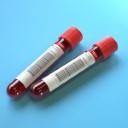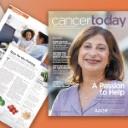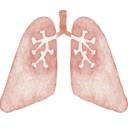-
Liquid Biopsies May Ease Enrollment in Clinical Trials
A study shows that a blood test for gastrointestinal tumor mutations gave results in a third of the time needed for solid tissue testing. Patients who received the blood test were more likely to enroll in clinical trials.
by Emma Yasinski
-
What Is Tumor Mutational Burden?
The Food and Drug Administration approved an immunotherapy drug for tumors with high tumor mutational burden regardless of tumor type. But some medical oncologists say it's not clear the biomarker is valid across all cancer types.
by Anna Azvolinsky
-
Drafting a Medical Team
Going through cancer treatment and ensuing complications is never easy, but surrounding yourself with the right key players can help, writes pancreatic cancer survivor Rob Weker.
by Rob Weker
-
Taking Drug Dosing Off Autopilot
Patient advocates with metastatic breast cancer argue that dosing of treatments for their disease should be more personalized and take into account quality of life.
by Marcus A. Banks
-
Reasons to Hope During the COVID-19 Pandemic
Patient advocates learned about COVID-19 and cancer in an AACR virtual forum.
by Kevin McLaughlin
-
Beating the Bully Inside
To gain control over fear of my breast cancer recurring, I called on lessons learned as a 5-year-old confronting the neighborhood bully.
by Joan Harris
-
Cancer Diagnoses and Research Continue
Amid the ongoing pandemic, Cancer Today continues to cover cancer research and treatment while also reporting on the many ways COVID-19 has impacted people with cancer.
by Kevin McLaughlin
-
Planning to Survive
Survivorship care plans can prepare cancer patients to get the best medical care and maintain their quality of life following treatment.
by Carly Flumer
-
Targeted Therapy for Early-Stage Lung Cancer?
A trial of the targeted therapy Tagrisso (osimertinib) for early-stage lung cancer finds that patients who take it go longer without having a cancer recurrence. Whether that should change clinical practice is under discussion.
by Ashley P. Taylor
-
Cervical Cancer Screening Guideline Updated
A new version of the American Cancer Society's cervical cancer screening guideline says screening can start at a later age and highlights human papillomavirus testing as the preferred method.
by Anna Azvolinsky
Cancer Talk
Treatment Combination Improves Survival in EGFR-positive Lung Cancer
Adding chemotherapy to targeted therapy improves outcomes for people with advanced EGFR-positive non-small cell lung cancer.
by Sandra Gordon
Lessons From 20 Years Living With CancerMultiple myeloma survivor Jonathan Gluck reflects on uncertainty, and the scientific progress that has kept him living with cancer for more than two decades.
by Eric Fitzsimmons
The Enduring Importance of Cancer Disparities ResearchOpening session from AACR conference highlights how perseverance and adversity have informed cancer disparities research over the years.
by Eric Fitzsimmons
Most Cancer Survivors Don’t Meet Healthy Diet GoalsDespite research linking fruits and vegetables to cancer survival, many people do not change their eating habits after diagnosis.
by Darlene Dobkowski














